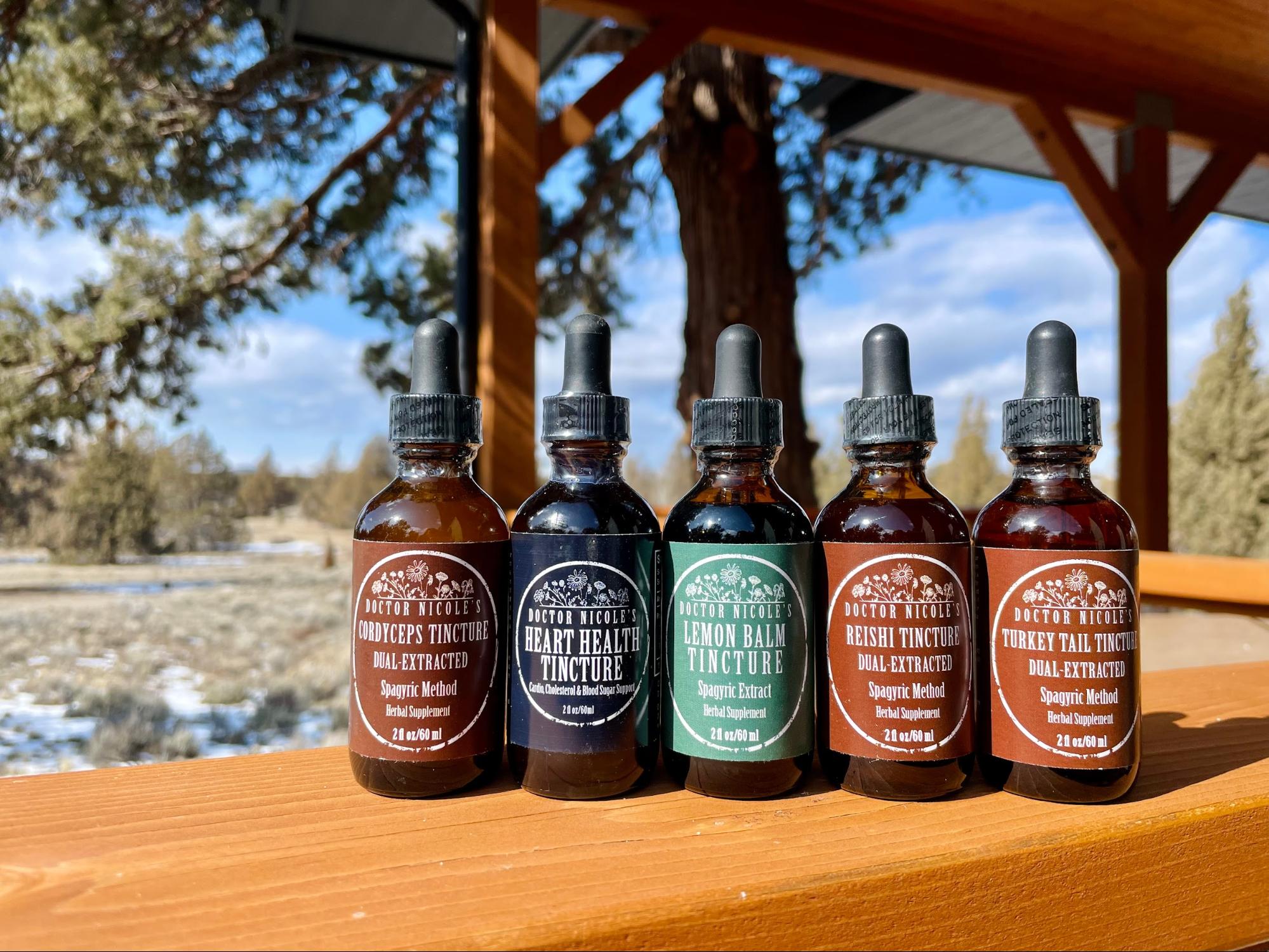New Research Questions What We Thought We Knew About Culinary Oils
For over a decade, there has been significant controversy surrounding seed oils with health influencers across the spectrum weighing in. For many of us, whether the oils are bad for you has already been answered with a resounding yes. But what does the science say? In this post, we will look at seed oils and how they are processed, areas of concern, and the findings of a new study that may throw into question all we thought we knew about the health-harming aspects of these liquid fats.
What’s Really in Your Cooking Oil? A Closer Look.
Found in a variety of processed foods and used for their neutral taste in cooking, seed oils have received a bad rap over the years. The range of these types of oils include canola, soybean, corn, cottonseed, grapeseed, safflower, rice bran, sunflower, and peanut oil — even though several of the oils are not technically produced from a seed at all. Typically, they are processed through high heat and synthetic chemical extraction methods that often involve hexane, bleaching, and deodorizing. These aren’t the only areas of concern. As I wrote in “Elevate Your Meals With These Healthy Condiments — Wild Food Recipe Included!“:
“Often, low-quality oils such as canola, cottonseed, corn, soy, and grapeseed are used for producing condiments. The concern is that a majority of these non-organic crops in the USA are genetically modified and have also been heavily sprayed with pesticides — which end up in the oil. Moreover, the oils are highly refined and subjected to high heat that creates rancidity. This oxidation is problematic for health because it leads to damaging free radicals in the body that are associated with higher rates of disease, such as cancer, diabetes, cardiovascular and neurodegenerative disorders, chronic inflammation, rheumatoid arthritis, and more. To address the issue of foul-smelling rancid oils, they are then deodorized, which changes the omega-6 fatty acids into trans fats.”
High in omega-6 fatty acids, several studies have shown seed oils can contribute to obesity, heart disease, type II diabetes, inflammation, and arthritis.1,2,3 However, a 2025 study at the University of Indiana may give you pause for thought.

Study Finds Surprising Health Benefits Associated With Seed Oils
For the study, researchers measured the height, weight, and blood levels of glucose, insulin, linoleic acid, and polyunsaturated omega-6 fatty acids from seed oils in 1,894 adults.4 They found that those who had higher levels of linoleic acid had a lower risk of diabetes and heart disease, along with fewer biomarkers for inflammation. These findings counter claims that seed oils promote obesity, inflammation, heart disease, and type II diabetes and were presented in an AAAS EurekAlert! news release in June of this year.5
“There has been increasing attention on seed oils, with some claiming these oils promote inflammation and raise cardiometabolic risk,” said Kevin C. Maki, Ph.D., adjunct professor at the Indiana University School of Public Health-Bloomington and chief scientist at Midwest Biomedical Research. “Our study, based on almost 1,900 people, found that higher linoleic acid in blood plasma was associated with lower levels of biomarkers of cardiometabolic risk, including those related to inflammation.”
He points out that other studies assessing the relationship between linoleic acid and cardiometabolic risk factors used diet records or food frequency questionnaires to establish intake, whereas for their research the team used objective biomarkers for gauging inflammation, glucose metabolism, and more. They found that participants with higher amounts of linoleic acid showed lower levels of glucose and insulin — as well as HOMA-IR, a biomarker of insulin resistance. What’s more, they also had lower levels of biomarkers that indicate inflammation, including C-reactive protein, glycoprotein acetyl, and serum amyloid A.
The team is quick to note that additional interventional studies are needed to establish if increased intake of linoleic acid improves cardiometabolic risk factors and reduces the incidence of heart attacks, stroke, and type II diabetes. In a follow-up study, they plan to investigate how different oils with varying fatty acid levels impact these risk factors.
Interested in learning more about the best oils for health? See “My Favorite Culinary Oils for Inflammation, Weight Loss, Diabetes, and More“.
Science-Backed Botanicals for Blood Sugar Control, Cholesterol & Heart Health
While the benefits and drawbacks of seed oils continue to be explored, there are several science-backed herbal medicines available now that have a long history of use for promoting heart health, balancing blood sugar levels, calming inflammation, and improving cholesterol levels. These include cordyceps, reishi, and turkey tail medicinal mushrooms, along with lemon balm. Each concentrated herbal extract is found in our convenient Heart & Blood Sugar Support Bundle.
Cordyceps helps to manage blood sugar levels, eases chronic inflammation, supports cardiovascular health, and lowers LDL cholesterol — which in turn helps to prevent plaque buildup in the arteries that can lead to heart attack or stroke. Reishi is also anti-inflammatory and assists in the management of blood glucose levels. Next is turkey tail. Helping to calm internal and external inflammation, it promotes blood sugar regulation, lowers LDL cholesterol, and encourages healthy blood pressure levels. Lastly, lemon balm addresses oxidative stress and helps to balance blood sugar levels.
At my apothecary, we join the wisdom of traditional herbal medicine with the rigor of modern science. Our Heart & Blood Sugar Support Bundle features potent extracts that have been selected for their proven ability to support cardiovascular health and metabolic balance. Backed by clinical insights and formulated to meet the highest standards of purity and potency, these herbal allies help to build the foundation of long-term health. Visit the apothecary today and take the next step toward true wellness.
Nicole Apelian
Nicole’s Apothecary Products in this Post
References
- Patterson, E., Wall, R., Fitzgerald, G. F., Ross, R. P., & Stanton, C. (2012). Health implications of high dietary omega-6 polyunsaturated Fatty acids. Journal of nutrition and metabolism, 2012, 539426. https://doi.org/10.1155/2012/539426. https://pubmed.ncbi.nlm.nih.gov/22570770/
- Ng, C. Y., Leong, X. F., Masbah, N., Adam, S. K., Kamisah, Y., & Jaarin, K. (2014). Heated vegetable oils and cardiovascular disease risk factors. Vascular pharmacology, 61(1), 1–9. https://doi.org/10.1016/j.vph.2014.02.004. https://pubmed.ncbi.nlm.nih.gov/24632108/
- Wake Forest University Baptist Medical Center. “Trans Fat Leads To Weight Gain Even On Same Total Calories, Animal Study Shows.” ScienceDaily. ScienceDaily, 19 June 2006. https://www.sciencedaily.com/releases/2006/06/060619133024.htm
- Maki, Kevin C., et al. Associations of Serum Omega-6 Polyunsaturated Fatty Acids with Biomarkers of Glucose Homeostasis. Midwest Biomedical Research and Indiana University Bloomington. Accessed 15 July 2025. https://www.dropbox.com/scl/fi/x9u9f747e4t489iulb93q/Maki-abstract-glucose.pdf?rlkey=ccjgr5vkk4l4cciplhbamleny&e=3&dl=0.
- Higher linoleic acid levels linked to lower heart disease and diabetes risk, American Society for Nutrition. EurekAlert! June 1, 2025. https://www.eurekalert.org/news-releases/1084800







